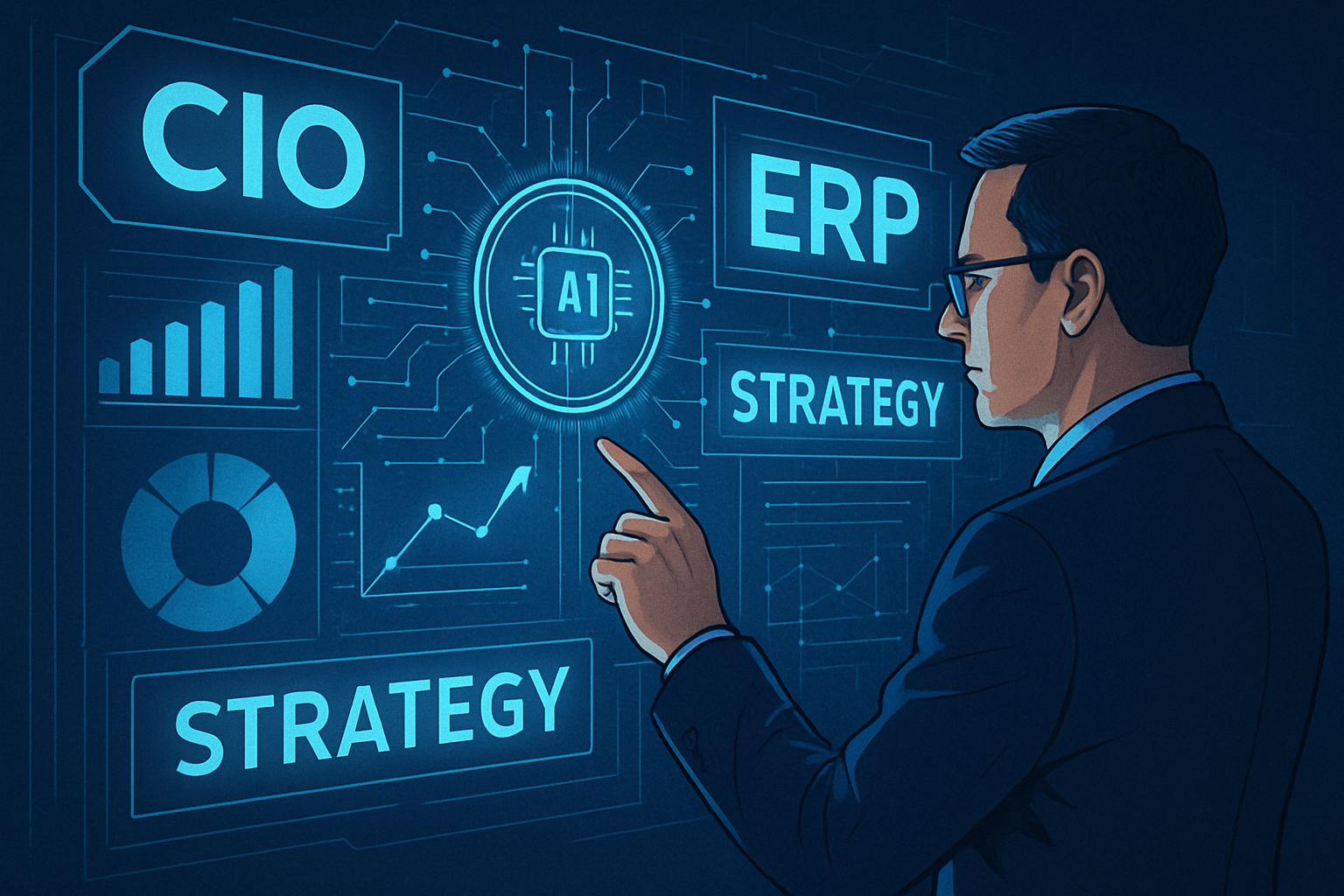Quick Take
- Enterprise software vendors forced costly 3-5 year ERP upgrade cycles worth millions per company
- Agentic AI now delivers innovation on existing systems without rip-and-replace migrations
- Zhipu AI’s framework achieves 48.1% automation success vs OpenAI’s 42.9%
- Gartner predicts 15% of work decisions will be autonomous by 2028
- AI-native startups like Rillet doubled ARR quarterly, acquiring incumbent customers
Enterprise software executives are finally breaking free from vendor-controlled upgrade traps. Rimini Street executive Joe Locandro recently revealed how Agentic AI eliminates forced 3-5 year ERP cycles worth millions per implementation.
According to Locandro, Executive Vice President and Global CIO at Rimini Street, who brings 25 years of enterprise software experience across airlines, utilities, and manufacturing, this breakthrough lets companies innovate without expensive overhauls.
For decades, ERP vendors disguised revenue-driven upgrades as necessary innovation. They forced companies into expensive cycles every three to five years. The combination of generative AI and autonomous agents creates transformative capabilities built directly on existing ERP systems. No vendor-dictated timelines. No years-long implementations. No rebuilding functionality companies already have.
“You can start flowing new processes and innovations without changing the core,” explains Locandro.
Traditional Upgrade Model Crumbles
“Every three to five years you had to do this massive upgrade,” Locandro reveals. “That’s been a well-trodden path for CIOs for the last 10-15 years.” Agentic AI demolished this model entirely, turning legacy ERP systems into functional foundations for innovation.
The paradigm shift centers on opportunity cost of capital. “Do I spend more money upgrading a system over three to five years? Or do I spend it on plants, equipment, and factories to upgrade output?” Locandro asks.
Third-party support providers now offer 5-10 year maintenance windows, fundamentally altering enterprise software economics. Companies trapped in vendor-mandated migrations face particularly stark choices, especially with SAP’s clean core requirements for cloud deployment.
“Companies that decided to migrate two years ago, before the ChatGPT-led AI boom, find it very, very difficult to unravel the customizations,” Locandro argues.
Technical Performance Breakthrough
Agentic AI transforms ERPs from simple systems of record into systems of action. Zhipu AI’s ComputerRL framework demonstrates this evolution, achieving 48.1% success rates on complex automation tasks – surpassing OpenAI’s models at 42.9%.
The technology operates across platforms, extracting value from data wherever it lives. Instead of vendor-specific AI working only within silos, platform-agnostic AI orchestrates across any system. This creates capabilities no single vendor can match.
Gartner predicts 15% of day-to-day work decisions will be made autonomously through agentic AI by 2028. This projection carries particular significance for procurement and supply chain operations, where complex trade-offs between cost, quality, and delivery timelines happen continuously.
Event-Driven Architecture Revolution
Traditional ERP systems operate in request-response mode, struggling with fast-moving business demands. Event-driven architecture changes this paradigm completely. ERPs become responsive to business events as they occur, automatically initiating procurement, checking supplier availability, and negotiating delivery timelines when stock drops below safety levels.
The true power emerges when agents in different systems communicate directly. A CRM agent detecting a large custom order can instantly communicate with ERP agents to confirm material availability, delivery schedules, and pricing approvals in real time.
Market Disruption Accelerates
Financial markets reflect this transformation. Established ERP players face declining valuations despite revenue growth. Investors question traditional licensing models when AI agents deliver orchestration and automation at a fraction of legacy costs.
Rillet, an AI-native ERP startup, exemplifies this trend. Their programmable general ledger automates critical workflows around close, reconciliations, and reporting. Since emerging from stealth in 2024, Rillet serves over 200 customers and doubled ARR quarter-over-quarter, acquiring customers from entrenched incumbents – a feat previously considered impossible.
Strategic Implementation Framework
CIOs now have genuine alternatives to vendor roadmaps. Building new technology on top of existing systems offers faster time-to-value than traditional upgrades. “Your underlying ERPs will be plug-and-play in the future, as you build more functionality outside the core,” Locandro predicts.
This shift requires strategic thinking about long-term benefits and AI integration risks. Vendor-reactive AI development could limit capabilities across diverse systems. Smart leaders evaluate existing infrastructure’s potential for integrating agentic AI, reducing reliance on costly upgrade cycles.
The ability to innovate without excessive upheaval promotes sustainable growth. Companies can focus funds on growth areas like equipment and expansion rather than mandatory software updates.
Future Enterprise Landscape
Looking ahead, the fundamental economics of enterprise software are changing. When intelligence can be layered on any system, when data can be accessed directly rather than moved and processed, and when workflows can be reimagined rather than just automated, old ERP sales rules no longer apply.
The question isn’t whether the forced upgrade model will survive, but how quickly enterprises will realize they no longer need to be hostages to vendor timelines.
As Locandro’s insights demonstrate, adapting to agentic AI isn’t just an option – it’s a strategic imperative representing fundamental shifts in IT landscape operations, increasing efficiency while reducing costs over traditional ERP-dependent frameworks.






